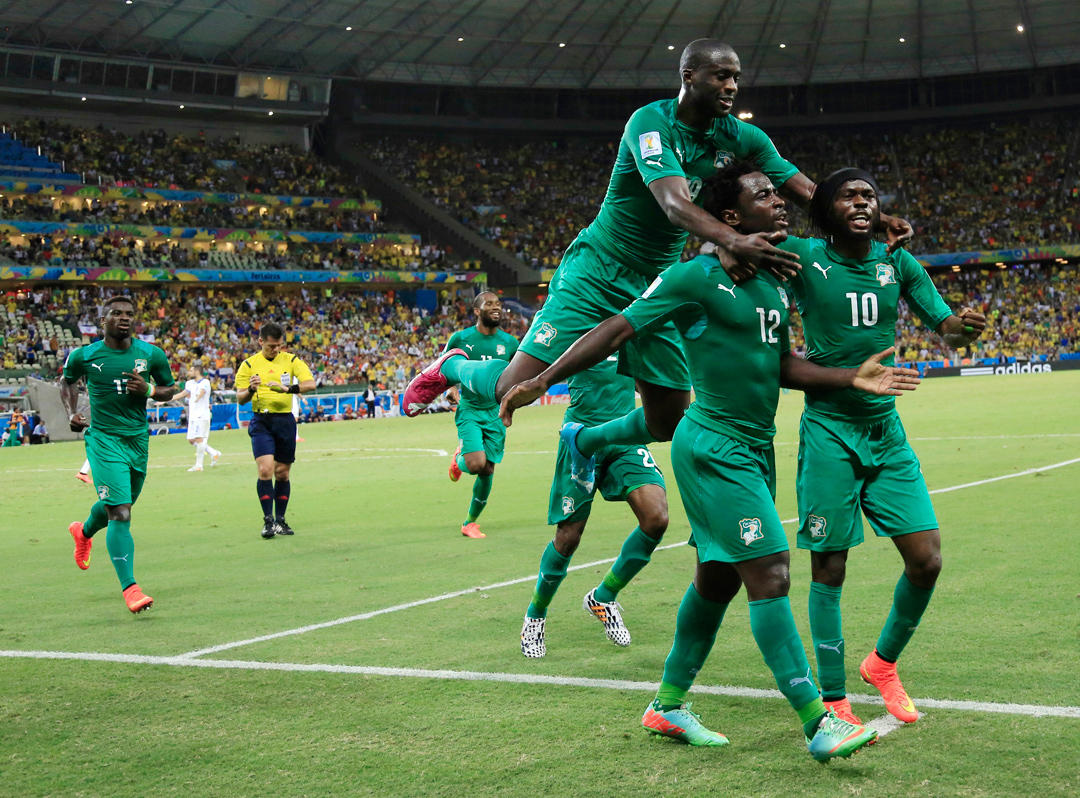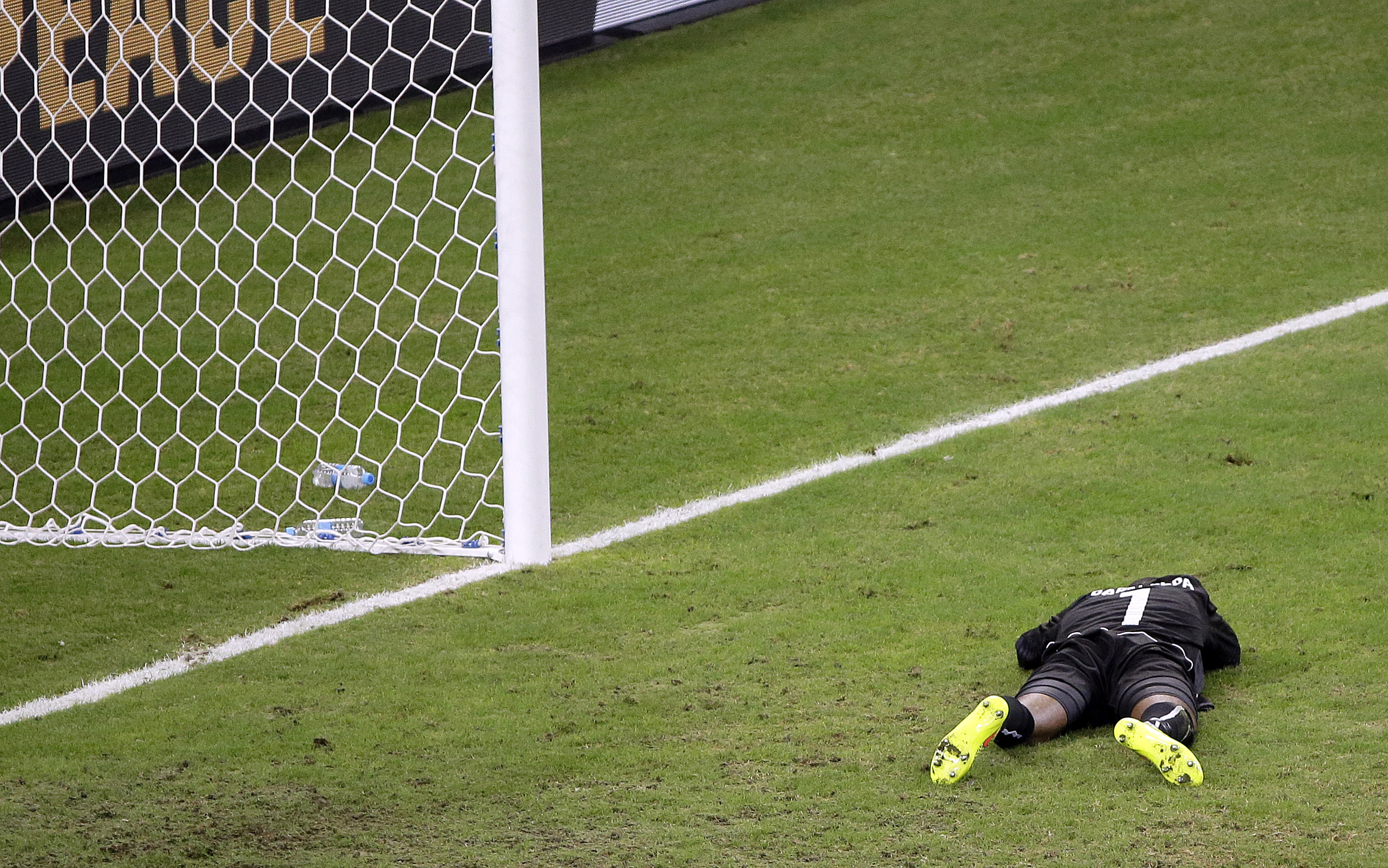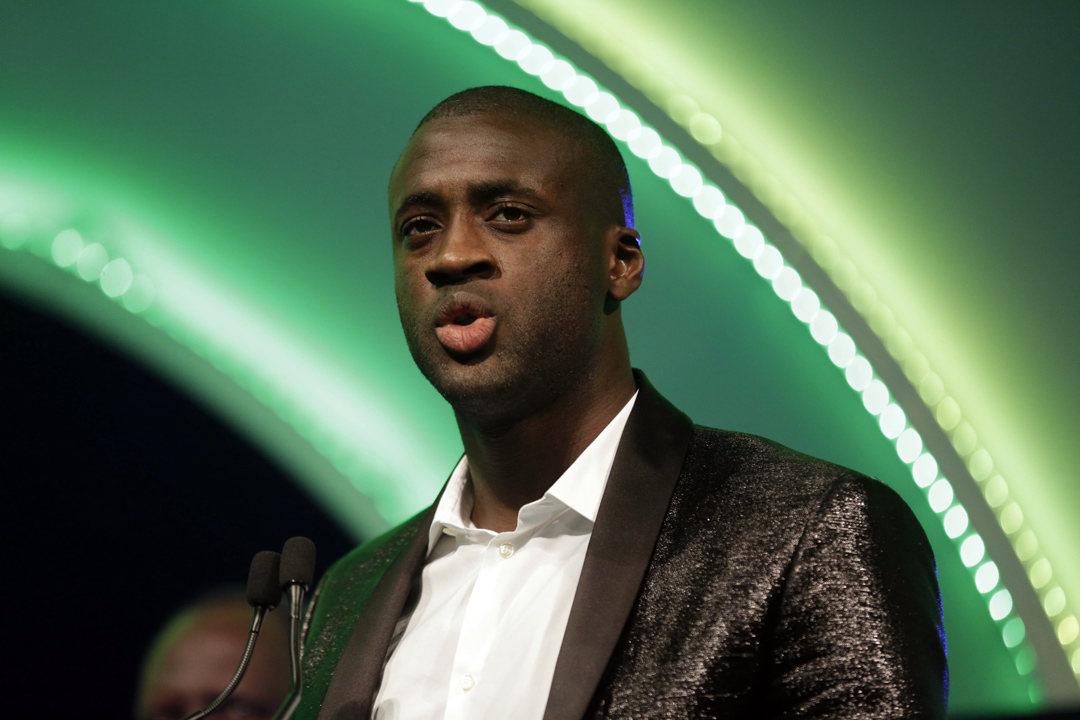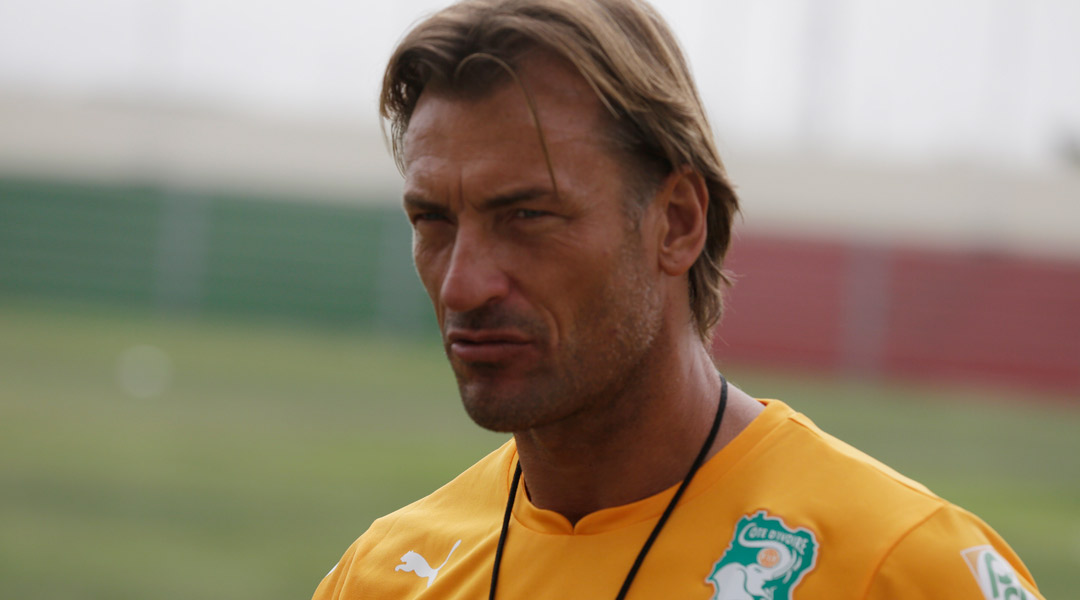With Drogba gone, Ivory Coast will rely on the Toure brothers for glory
FFT's Jonathan Fadugba reports on Ivory Coast's chances at the 2015 Africa Cup of Nations, with the Toures expected to carry the can in Didier Drogba's absence...

Boubacar Barry couldn't even move. Serey Die was in tears. Bodies lay all around them, grief-stricken, inconsolable. If you’re seeking a moment that can neatly sum up more than 20 years of Ivorian football, this was it: the Castelão in Fortaleza, June 24 2014.
Greece vs Côte d’Ivoire - a game of few chances and very little goalmouth action. Côte d’Ivoire need just a point to advance to the World Cup second round for the first time in their history, and, for 41 minutes or so, look well placed to secure exactly that.
2013 Quarter-finals
2012 Runners-up
2010 Quarter-finals
2008 4th
2006 Runners-up
Minutes before half-time, the Ivorians have the ball in their own half. It’s a slow passage of play. Passing it out from the back, Kolo Toure lays it right to Serge Aurier. Aurier sees Yaya Toure dropping deep to receive the ball and lays it off. Toure plays it back first time. Aurier gives it back to Toure, who’s now turned his body to face forward, laying it infield to Cheick Tiote. All of this is casual, the Greeks barely even bothering to press. Suddenly, panic.
Tiote, a man who’s made more than 100 Premier League appearances, plays the most apathetic, careless of first time passes back to defence, completely unaware of the onrushing threat posed by Andreas Samaris. A quick one-two and the next thing you know, Côte d’Ivoire are 1-0 down, their hopes of qualification severely dented.
If you think that counts as sufficient calamity, Greece’s winning goal came in the 93rd minute, a recklessly conceded penalty that would throw further salt in the wounds, the killer blow in a 2-1 defeat that snatched failure from the jaws of triumph.

This masochistic, self-inflicted torture is nothing new for Côte d’Ivoire. Since this golden, ASEC Mimosas-sourced generation of Ivorian talent emerged, self-destruction has been a most reliable companion.
Look back over the last decade and the tales of woe pile up like a stack of rubbish bags. The 2006 final, when Didier Drogba helped carry his team to the final before missing a crucial penalty in the deciding shootout against Egypt.
Get FourFourTwo Newsletter
The best features, fun and footballing quizzes, straight to your inbox every week.
2008, when the West Africans looked like destroying all before them, battering Guinea 5-0 in the quarter-finals, only to lose 4-1 to a brilliant Egypt, a game still pin-pointed as the exact moment Kolo Toure’s career began to decline, such was the pounding he took from Amr Zaki.
2010 and 2013 brought further disappointment, while the 2012 penalty shootout loss to Zambia goes down as one of the biggest upsets in Cup of Nations history – more heartache for Drogba, who missed a penalty in normal time.
New beginnings?
The 2015 Cup of Nations has once again been billed as ‘last-chance saloon’ for this golden generation. Drogba has gone, leaving behind rumours and speculation back home after commenting that he felt he ‘did not have the trust like I had before’ within the international setup.
The 36-year-old’s presence as captain and spiritual leader of the group will be sorely missed, but this could consequently be the tournament at which the Toure brothers emerge from Drogba’s shadows and bear the weight of the added responsibility.
"Before I retire I really want to win something with my country," Yaya Toure has said time and time again, a desire so strong it borders obsession. Between them, Kolo and Yaya have nearly 200 international caps, Yaya the only African to make the shortlist for the 2014 FIFA Ballon d'Or.
With doubts surrounding their international futures, given their respective ages, it would be a fitting tribute if they could spearhead the Ivorians’ charge to only their second ever AFCON title after the sad death of their younger brother Ibrahim last year.

Drawn into a very tough group, Drogba’s technical and mental qualities will be missed, but there is a man with the ability to adequately replicate his goal-getting abilities. Manchester City new boy Wilfried Bony scored the equaliser against Greece that very nearly saw Côte d’Ivoire make history in Brazil.
Following a £28 million move to a top European club, Equatorial Guinea is the first checkpoint of Bony’s career at which he goes from under-the-radar talent to a man who’ll be relied on and expected to produce the goods.
While Bony is tasked with providing the firepower and the Toures are team leaders, on and off the pitch, the man whose remit is to bring it all together for Côte d’Ivoire is French boss Herve Renard. Renard led Zambia to their first ever Cup of Nations triumph in 2012 at Côte d’Ivoire’s expense, masterminding the southern African nation’s unlikely, fairy tale success against all odds in one of the greatest finals in African football history.
A tactically astute manager who excels at creating a harmonious environment for his players, Renard’s path through the qualifiers wasn’t plain sailing. Côte d’Ivoire were battered 4-1 by Cameroon and lost at home to DR Congo but advanced to Equatorial Guinea as group runners-up.

Renard has tried to play down expectations, saying that his team are ‘in a period of transition’. “We’re going to the tournament with a new, remodelled squad and it will be different from the World Cup group,” says the one-time Cambridge United manager.
As part of this, he’s left the categorically hopeless Sol Bamba out of his squad and brought in inexperienced players and new faces like Junior Tallo, ADO Den Haag’s Wilfried Kanon and Espanyol’s Eric Bertrand Bailly – the latter duo both under 22 and uncapped.
Regardless of Renard’s attempts to downplay things, when it comes to football Côte d’Ivoire remain a giant of the continent. This isn’t Zambia, and painting the team as outsiders won’t work – the bookmakers still have them as tournament favourites. A nation expects.
As always with the Ivorians, how well they implement their build-up play will be central to their chances. As that moment in Fortaleza well showed, building from the back is one of Côte d’Ivoire’s principle Achilles heels.
If they can stay solid at the back and give the ball safe passage to the potent front three – Bony and Gervinho in particular, with Yaya Toure in support – then maybe, just maybe, this may finally be the golden generation’s crowning moment.
Watch every match of the Africa Cup of Nations LIVE on British Eurosport HD or sign up to Eurosport Player and follow the action on mobile, tablet and other devices: www.eurosportplayer.com
